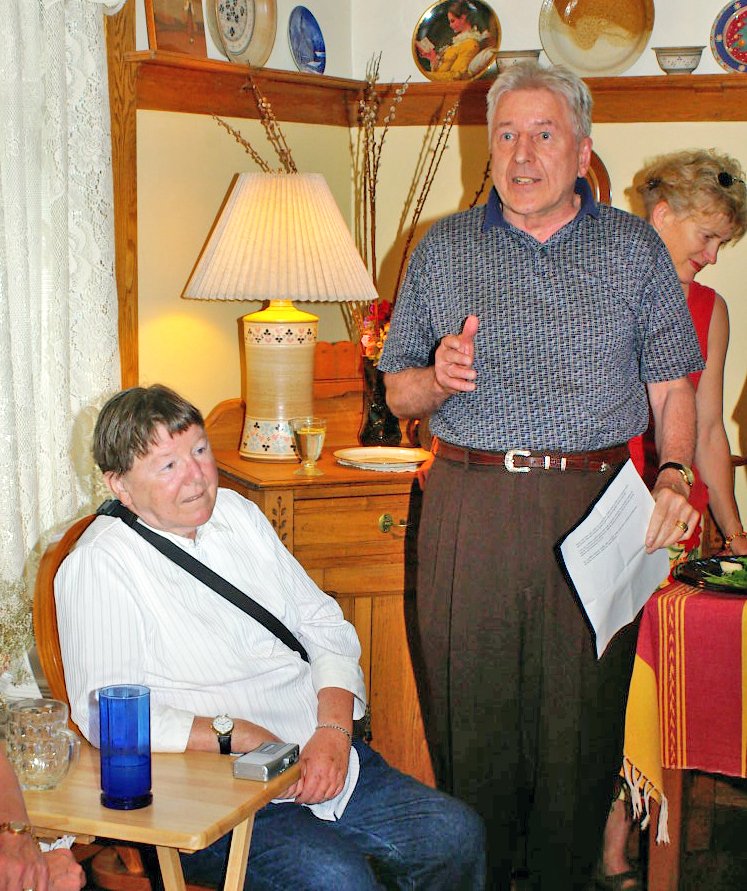Martin C. Barry

William Johnson, the often fiery political columnist, whose uncompromising stance on Canadian unity made him a reviled figure among Quebec separatists – but also a hero to many Quebec Anglo-rights activists – passed away in his home community of Gatineau near Ottawa last Sunday, his family confirmed to The Laval News.
Johnson, 88, was a long-time political columnist for The Globe and Mail and The Montreal Gazette, as well as the author of several books – some of which attacked Quebec nationalism with great gusto.
Proud of his roots
While Johnson’s mother was a Francophone and his father an Anglophone, he always claimed to be proud of his French-Canadian roots. Paradoxically, he accused many French Quebecers of suffering from a crippling narrow-mindedness that affected their political judgment.
Following studies at Montreal’s Collège-Jean-de-Brébeuf, and after graduating with a B.A. from Montreal’s Loyola College in 1949, Johnson, as he would later admit in a published interview, submitted to pressure from his fervently religious mother and joined the Jesuit priesthood, where he ended up spending 10 years.
Take a look at the
featured Local Savings
at the bottom of this page!
Abandoned the Jesuits
It was something he would end up regretting and turning against. Before completing his religious training, he left the Jesuits. He then embarked on a relatively short stint as an academic, teaching sociology at the University of Toronto, before beginning his long journalistic career.
His initial professional experiences in journalism during the early 1960s saw him freelancing feature articles for Weekend Magazine, a Saturday magazine supplement distributed as an insert in newspapers across Canada from the 1950s to the late 1970s.
In one of his most memorable pieces from that early time, Johnson wrote about taking part, along with members of his young family, in one of American black rights activist Martin Luther King’s “freedom marches” through the south of the U.S.
Worked at the Globe
His first full-time job as a journalist was in 1967 at the Toronto Globe and Mail, where he was taken on as a city reporter. By the early 1970s, he had become the Globe and Mail’s political correspondent in Ottawa. He later also worked as a correspondent in Quebec City and Washington D.C.
In the latter part of his career, Johnson became a political columnist for the Montreal Gazette, although (according to a biography posted on his web site) his position as national affairs columnist was “terminated” by Gazette editor Joan Fraser.
This came, as Johnson would sometimes recount to those who knew him, following a dispute over what he deemed to be The Gazette’s weak response to the Quebec sovereignty movement under Fraser, who would go on to be appointed to the Canadian Senate.
Alliance Quebec period
In what was perhaps William Johnson’s most high-profile undertaking, in 1998 (when he was still disturbed by the close results of Quebec’s 1995 referendum) he ran for and won the presidency of the English-language lobby group Alliance Quebec, serving a controversial and turbulent term until the year 2000.
According to an online encyclopaedia’s description of the events back then, he refused to meet with government officials, held two demonstrations against the Charter of the French Language, added clauses to the group’s constitution denouncing hypothetical declarations of independence by the Quebec government, and supported the election of members of the Equality Party to Alliance Quebec’s board of directors.
In protest, 20 members of the Alliance Quebec board and most staff members resigned, while six affiliated groups severed their ties, calling his leadership style overly confrontational.
Reaction in Laval
Martin Berman, a Chomedey resident who was on the board of Alliance Quebec while Johnson was president, credits Johnson with having greatly influenced his views on Anglophone rights in Quebec.
“I don’t like to admit it, but he actually converted me,” Berman said. “I became very, very vocal because of him. I sort of knew what was going on in Quebec. But after hearing him speak, I sort of thought to myself it’s about time somebody was doing something about this.
“He woke us up to what was happening,” Berman added. “The rights of English-speaking people in the province of Quebec were being eroded so quickly and we were just sitting around like a bunch of dummies. All of a sudden he was saying wake up.”
Another Chomedey resident, Gail Campbell, who was also active with Alliance Quebec during that period, saw things from a somewhat different perspective.
“I felt that Alliance Quebec was succeeding with a diplomatic approach,” she said. “There was a difference in styles in his approach. And did we gain from it, or did we lose from it? I think we’ll leave that to the ages to be decided.”
Published works
Among William Johnson’s published books were The Informer: Confessions of an Ex-Terrorist, which Johnson co-wrote with Carole de Vault, a police mole who infiltrated the FLQ; Anglophobie: Made in Québec (1991); A Canadian Myth, Quebec, between Canada and the Illusion of Utopia (1994); and Stephen Harper and the Future of Canada (2005).
William Johnson had also been working on a new book, in which he hoped to take aim at the credibility of wartime claims made by René Lévesque – the Quebec sovereignty movement’s most sacred idol – regarding Lévesque’s experiences at the end of World War II when he was a U.S. Army correspondent in Europe.















